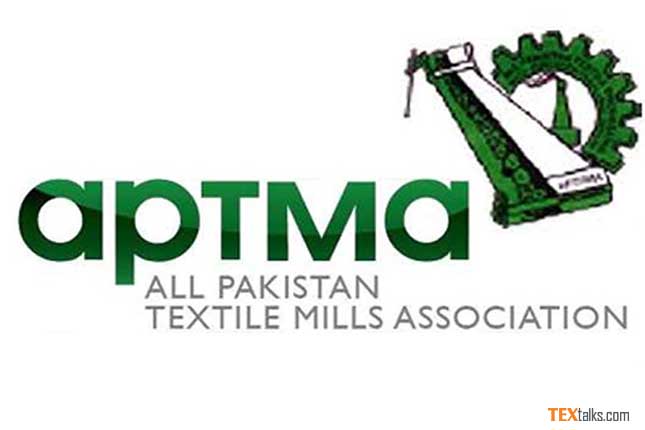LAHORE: The All Pakistan textile Mills Association (APTMA) Chairman Syed Ali Ahsan has apprehended that the proposal of withdrawal of zero rating regime would have adverse impact on exports production and investments, as such policies would deter both local and foreign investments in the sector and chances of industry closure are too high.
He said the industry is seriously concerned on the move, as the end exporter would be the worst hit due to stuck up of refunds.
 He said the regime of zero rating was introduced after due diligence by the FBR after meetings with the stakeholders and verifications by the leading auditor M/s A F Ferguson, as the government was collecting less sales tax and disbursing more refunds under the earlier regimes when wrong registration of taxpayer and flying invoices was a common practice. It also plagued the system with corrupt practices and ultimately a colossal loss to the exchequer. The government had therefore introduced zero rating regime in 2009 which is in practice since then. Only minor inputs with common use in other industries was excluded from zero rated regimes and thus resulted into piling up of refunds difficult to obtain well in time. Even under the zero rating regimes, a sizeable amount of industry’s refund is pending with FBR.
He said the regime of zero rating was introduced after due diligence by the FBR after meetings with the stakeholders and verifications by the leading auditor M/s A F Ferguson, as the government was collecting less sales tax and disbursing more refunds under the earlier regimes when wrong registration of taxpayer and flying invoices was a common practice. It also plagued the system with corrupt practices and ultimately a colossal loss to the exchequer. The government had therefore introduced zero rating regime in 2009 which is in practice since then. Only minor inputs with common use in other industries was excluded from zero rated regimes and thus resulted into piling up of refunds difficult to obtain well in time. Even under the zero rating regimes, a sizeable amount of industry’s refund is pending with FBR.
He said the proposed scheme to raise revenue from the textile value chain by introducing 17 percent sales tax and subsequent refund of the same under an already tested, tried and eventually failed system would choke down the entire value chain of the industry and exports due to the liquidity constraints. The industry cannot afford to obtain funds at an exorbitant interest rate hovering around 15 to 17 percent and pay input tax and then wait for its refund. This system would serious adverse implication on the entire textile value chain.
It has been estimated that raw materials as input of various sub-sectors of the textile value chain involves over Rs. 600 billion of the industry liquidity that would stuck up with the government and subsequently would become refund which is very difficult to obtain from the department. Even, it takes years to get the refund processed for the payment to claimant.
The revenue from the local sales of these five export sectors can be increased by bringing the retailers in the tax net through normal regime or fixed tax regime as being contemplated for traders of Islamabad, he stressed.
He said the extra-ordinary increase in quantity exports (i.e. garments by 29%, knitwear 15% and bed wear by over 10%) which has been achieved after a very long time during the period of last 10 months due to the government’s energy policies, which stimulated and made the sector internationally competitive. The industry is on the verge of a takeoff with order books being full and expansion and greenfield projects just awaiting announcement of the new five year textile policy to commence.
He has expressed the hope that sanity would prevail and the economic policymakers of the government would abstain from halting the production wheel of the exporting industry, as it carries no logic in cutting the whole goat to get a piece of flesh.



